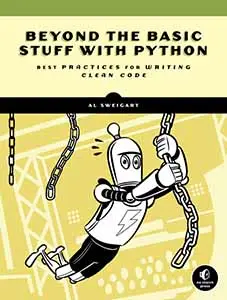Python's Fake Increment and Decrement Operators
Posted by Al Sweigart in misc
In Python, you can increase the value of a variable by 1 or reduce it by 1 using the augmented assignment operators. The code spam += 1 and spam -= 1 increments and decrements the numeric values in spam by 1, respectively.
Other languages such as C++ and Java have the ++ and -- operators for incrementing and decrementing variables. (The name of C++ itself reflects this; the name is a tongue-in-cheek joke that indicates it's an enhanced form of the C language.) Code in C++ and Java could have ++spam or spam++. Python wisely doesn't include these operators; they are notoriously susceptible to subtle bugs.
However, it is perfectly legal to have the following Python code:
>>> spam = 42 >>> spam = ++spam >>> spam 42 >>> spam = --spam >>> spam 42
The first thing you notice is that the ++ and -- "operators" in Python don't actually increment or decrement the value in spam. Rather, the leading - is Python's unary negation operator. It allows you to have code like this:
>>> spam = 42 >>> print(-spam) -42It's legal to have multiple unary negative operators in front of a value. With two of them, you'd get the negative of the negative of the value, which for integer values just evaluates to the original value:
>>> print(--spam) 42 >>> --42 42
This is a quite silly thing to do, and you won't ever see a unary negation operator used twice in real-world code. (Though if you did, it's probably because the programmer learned to program in another language has just written buggy Python code!) There is also a + unary operator. It evaluates an integer value to the same sign as the original value, which is to say, it does absolutely nothing:
>>> +42 42 >>> spam = -42 >>> print(+spam) # +spam is not the same as abs(spam) -42
Being able to write +42 (or ++42) seems just as silly as --42, so why does Python even have this unary operator? It exists only to complement the – operator if you need to overload these operators for your own classes. (See the documentation for the __pos__ special method.)
The + and – unary operators are only valid when in front of a Python value, not after it. While spam++ and spam-- might be legal code in C++ or Java, they produce syntax errors in Python:
>>> spam++
File "<stdin>", line 1
spam++
^
SyntaxError: invalid syntax
Python doesn't have increment and decrement operators, it's only a quirk of the langauge syntax that can make it seem like it does.




